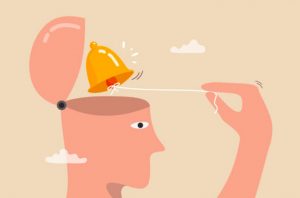Self-Awareness is Hard
Self-awareness is hard. My work with people requires loads of it; a real willingness to dig in and question themselves and think about all the implications of how they are behaving and getting things done. I have such consistent respect, even awe, as I do this work with people because I know it’s all too easy not to do it.

How well do you know yourself?
Who are the people you know really well in your life?
Your spouse? Your parents? Your best friend? As you contemplate your most intimate, secret-keeping, mind-reading relationships, do you think of the relationship you have with yourself? Chances are you don’t. The level of emotional self-awareness necessary to truly know, let alone love, yourself isn’t easy to achieve.
Yet, it’s so easy, isn’t it, to have everyone else in your life “figured out.” You predict their thoughts and behaviors. You know why they do what they do. You’ve just been around them so long you can read them like a book.
You may even be “that person” all your friends turn to for a listening ear, comforting shoulder, and sound wisdom. You know what they’re feeling and why. Some people are just that “in touch.”
But how well do you have yourself figured out? Do you have a grasp of why you feel what you feel and do what you do? Can you read yourself the way you (think) you can read others?
Emotional self-awareness is the foundational element of emotional intelligence, which is a cluster of abilities that makes emotional regulation possible. But self-awareness is perhaps the most difficult element to develop.

Self-awareness is the ability to see yourself clearly and objectively.
And learning how to be more self-aware starts with a u-turn that drives your focus inward.
And therein lies the rub.
For as much as we live in a me-me-me culture, most people back away from the real “me work” that leads to emotional self-awareness.
Duval and Wicklund’s Self-Awareness Theory is based on the idea that you are not your thoughts, but are a separate entity that observes your thoughts. You “self-evaluate” by thinking about whether your thoughts, feelings, and actions align with your values or “standards.”
By “comparing against your standards of correctness,” you know if you are in alignment with your standards or need to make changes.
The more self-aware a person is, the more likely that person is to make behavioral adjustments when necessary. Her/his goal is to reduce the discrepancy between standards (morals, ethics, performance goals) and thoughts/words/behaviors.
Simply put, the discrepancy between the standards you set for yourself and your thoughts and choices causes discomfort as self-awareness increases. You want to stay in alignment, and straying from that standard knocks you off-balance.
The catch-22 is that a person with low emotional self-awareness is less likely to make behavioral adjustments and more likely to avoid future introspection.
And that is precisely the person who most needs to become self-aware. Ironically, it’s as if self-awareness drives self-awareness. It’s like a positive feedback loop – the more you have, the more you develop it.
Likewise, the opposite is true for those who aren’t self-aware.
The bigger the discrepancy between their standards and choices, the less likely they are to step into the work of correcting themselves. They’re more likely to let their standards erode (thereby decreasing the discrepancy) or turn a blind eye to the arduous task of self-evaluation.
The tricky thing about emotional self-awareness is that most of us are on autopilot and don’t even know it. We lock in our thoughts, beliefs, habits, and behaviors early in life. And that kind of hardwiring is tough to rewire.
Think about the last time you found yourself in a conversation in which someone violated the cardinal rule of not talking politics. How much real listening went on? And how much lashing out with scripted platforms from opposite sides went on?
- Interactions
Interactions like that fuel the posture of reluctance to work toward self-awareness. People speak without thinking. They don’t answer questions asked because they’re on autopilot. They probably can’t even give an honest, reflective answer as to why they believe the way they do.
- Goal
Their goal has nothing to do with learning, growing, or doing any kind of emotional rearranging. That would be too much work and might be a display of weakness or lack of assuredness. And they have no sense of what their bodies are feeling, so they can’t connect their feelings to their behavior.
- Potential
All the potential for being fully present in the moment is therefore lost, as is the potential for growth. And the qualities that define authentic relationships are left buried in the vault that can be opened only by taking the risk of entering it. Developing emotional self-awareness starts with a commitment to doing the tough inner work.
And that means dealing with the distractions that we all masterfully use to keep us out of emotional pain.
Now is the moment. Now is where the feelings are.
And now is where you are – self-aware and self-accepted. Now you are capable of truly extending empathy to others because you have learned to love what you once feared in yourself.





